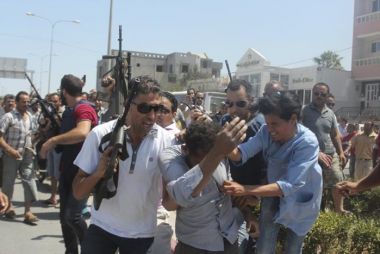Why did jihadists attack Tunisia? Catholic priest provides comprehensive explanation

A leading Catholic clergyman in Tunisia has maintained that majority of Tunisians are not extremists despite the terror attack last month which killed at least 38 people.
"The government also does not want an Islamic sharia state – on the contrary," said Father Sergio Perez, who leads of St. Vincent de Paul Cathedral in the capital city of Tunis.
"I believe that this is the very reason why the jihadists want to hurt Tunisia, a country that, despite many restrictions, is well on its way to democracy and stability," said the priest who hails from Argentina.
"In all likelihood, they do not want other Arab countries to see a model that is working. This goal can best be achieved by striking there where the Tunisian economy is at its most vulnerable: tourism."
Perez said the terror attack on a beachside hotel in Sousse made tourists leave the country, which "will have serious consequences for the country's economy, which is already suffering."
"The Christians of Tunisia are of course shocked by the massacre. Some are also afraid. However, I trust in the authorities. They now want to keep the cathedral or the bishop from becoming the target of a jihadist attack at all costs. Such an attack would be devastating for the reputation of the country. This is why they have taken all the necessary security measures," Perez said.
The authorities were already on heightened alert in March when terrorists attacked the Bardo Museum in Tunis, leaving at least 20 dead.
Some 80 mosques whose preachers called out for violence have already been closed.
There are around 25,000 Christians in Tunisia's 11-million population, of which Catholics form the largest single Christian group. Tunisia has Protestant and Orthodox communities as well.
"It is true that the Catholic Church in Tunisia is mostly comprised of foreigners. However, the Church feels as though it is part of the history and future of this country," the priest said. "The new constitution not only guarantees freedom of worship – it also provides for complete freedom of conscience."
However, "theory is one thing, practice is another."
"A Muslim who shows an interest in Christianity is placed under strong social pressure. Even so, time and again a number of Tunisian Muslims dare to take this step and take part in our prayers and charitable works," Perez said.











